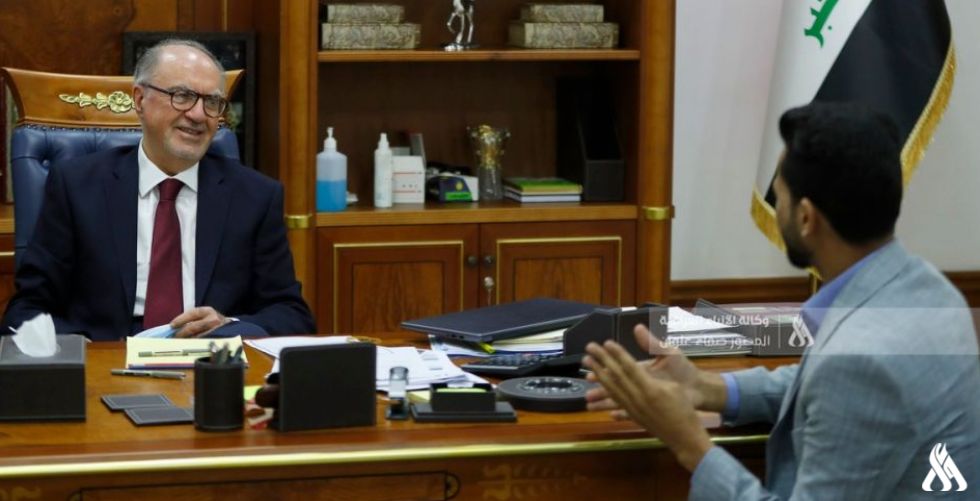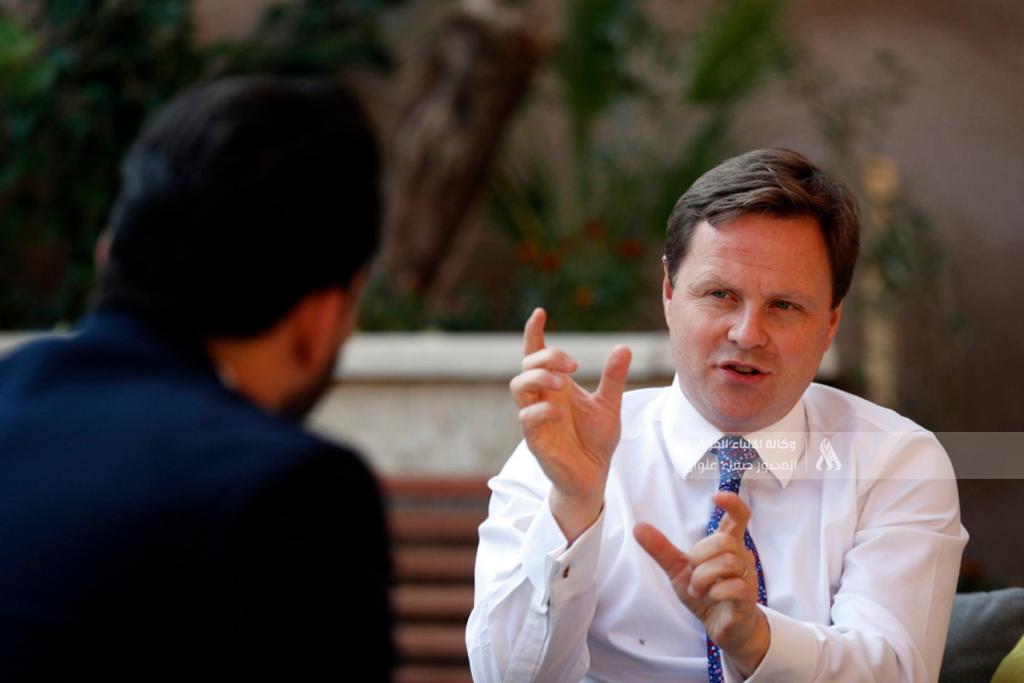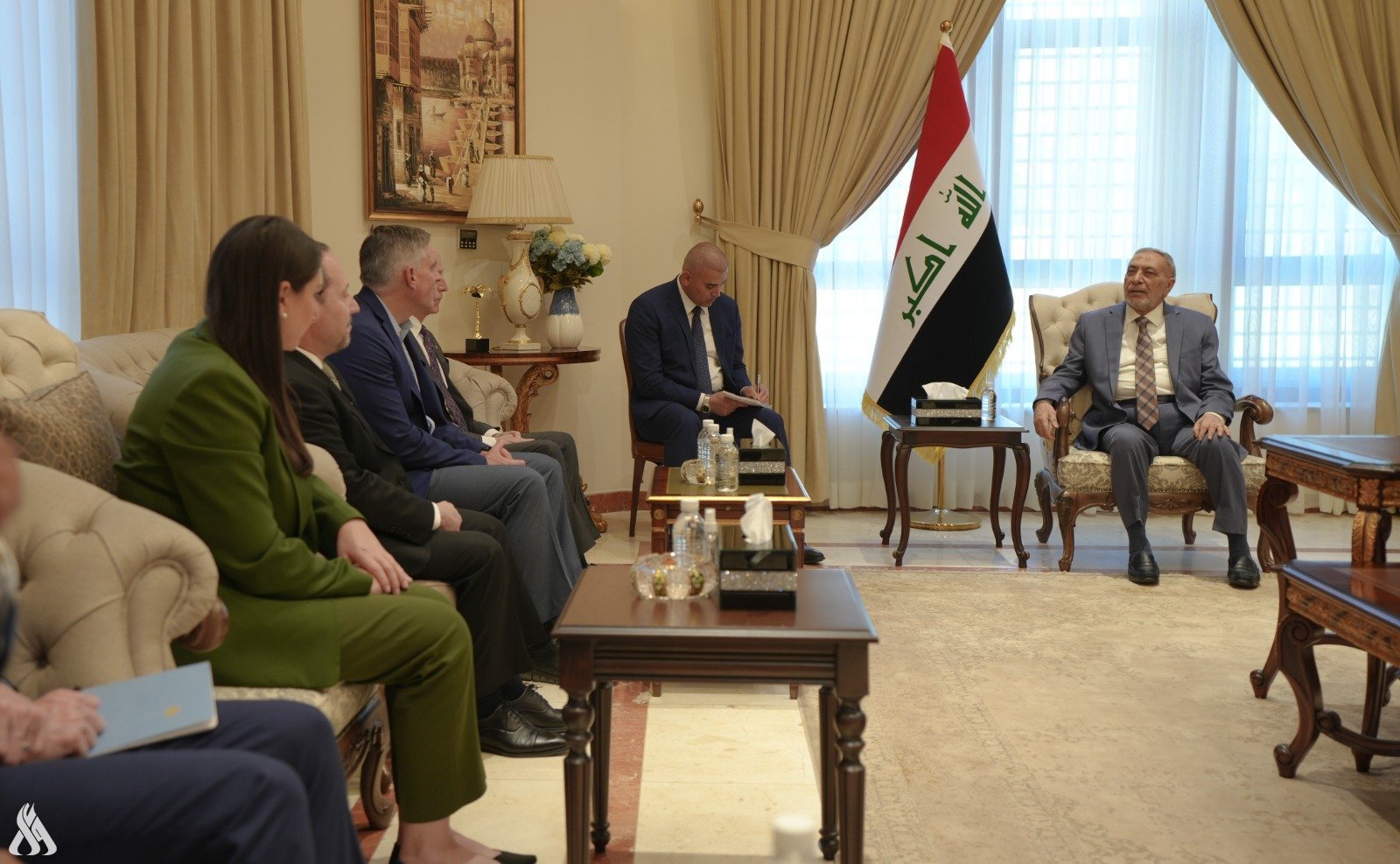
MOF sets the date for paying the employees ’salaries and reveals the size of the debts of Iraq

- 1-11-2020, 19:44
Baghdad - INA
The Minister of Finance, Ali Abdul-Amir Allawi, set the date for paying employees' salaries, and while noting that there are no job grades in the budget for next year, he revealed the size of Iraq's internal and external debts.
Allawi said in an interview with the Iraqi News Agency (INA), today, Sunday, that "the financial crisis that the country is going through is not a result of today, and it is the result of the decline in oil prices and the consequent reduction in production that affected the revenues generated by Iraq in a large way due to the reduction Iraq's share of exports, indicating that the reduction in oil exports has caused an increase in fees for contracts and licenses companies.
The financial crisis
He added, "The options for maximizing revenues quickly and in the short term in order to bridge the deficit are almost impossible," noting that "increasing revenues from other sources through taking measures that require in the short term from 3 to 6 months, especially since the state was dependent on oil from Without paying attention to other sources for years. "
He pointed out that "the current government faced the crisis without financial liquidity, so there is no choice but to borrow internally in the short term," noting that "external borrowing, which amounted to $ 5 billion, cannot be used to bridge the deficit, but is allocated to finance projects."
Staff salaries
He continued, "The House of Representatives set a ceiling for the first internal borrowing, which reached 15 trillion, despite our objection, which was not sufficient to meet the salaries and expenditures until last September, which forced the ministry to request a new borrowing with a higher ceiling of 41 trillion, so that we could fill the deficit in salaries and related ruling expenses." By importing electricity, fuel, foreign debt, the ration card and supporting farmers, "noting that" the amount included in the new borrowing covers salaries and expenses for the remainder of the current year and the first two months of next year. "
"The House of Representatives has the right to demand a reduction in the amount contained in the borrowing law, but this is the country's financial reality," he stressed, stressing the difficulty of controlling expenditures completely in light of the state building on a financially unstable base and expenditures based on unrealistic assumptions such as high oil prices.
He explained that the mechanism of repayment of internal borrowing is through the revenues generated from oil and the benefits arising from hypothetically through an understanding with banks and the Central Bank without being subject to market controls.
He added that the government has taken short-term measures to maximize revenues and has an integrated plan for the purpose of facing the economic crisis.
He pointed out that the salaries of employees for the month of last October will be paid, perhaps within two or three weeks, in case the borrowing law is not passed, but in the event of voting on it, it will be launched directly.
He warned that "the monthly revenues generated from exporting oil with the funds in the Ministry of Finance are not sufficient to cover the salaries of all employees, but need some kind of scheduling," noting that "without resolving the basic crisis will remain accumulated and the salary delay will persist."
And that "oil revenues constitute 93% of the general budget and the remainder of non-oil revenues, such as customs, ports, taxes and others."
He pointed out that "there is a decline in customs revenues for various reasons, including defects in the way they are obtained, abuses, smuggling and thefts," stressing the importance of controlling customs in order to increase revenues, but they do not constitute 15% of oil revenues in addition to taxes that are difficult to work on. Increase it in light of the economic recession. "
Activation of collection
He pointed out, "There is a strong trend to activate electricity collection by installing electronic meters to control it and covering part of the volume of allocations for the electricity sector, which amounts to about 14 trillion."
He stressed the necessity of spreading culture among the general public by paying the resulting taxes, stressing work to encourage investors in the sectors of generation, distribution and transportation.
Debts of Iraq
Allawi revealed the size of Iraq's debt, although it is not large, according to him, pointing out that "the foreign debt is estimated between 60 to 70 billion dollars."
He pointed out that "external debts, half of which are inherited, and the other was added after 2003 for various purposes, including financing projects," adding that "the internal debts are also estimated at 60 trillion."
White paper
Allawi pointed out that "the white paper presented by the government needs time to change the method of work and the economic structure, and another needs legal or legislative change," noting that "the white paper needs a complete institution that supervises the implementation and implementation process."
He explained that the mechanism for implementing the white paper will be presented to the Council of Ministers and perhaps also to the House of Representatives for approval, noting that "the process of pivotal change in the Iraqi economy requires persistence and continuous follow-up, and this needs a specialized body for follow-up, as well as working to change some laws, legislation and contexts over a period of years and is not limited to the government. She is six months or a year old. "
2021 budget
He pointed out that "the 2021 budget will be presented this month that includes a plan based on the medium term and basic changes to be implemented in the first phase of the white paper."
He pointed out that "the price of oil was based on $ 41 in the budget for next year," indicating that the majority of employees are not included in the proposed deduction in the allocations, which is under discussion in the budget, "indicating that the deduction from the allocations includes specific categories without prejudice to the nominal salary."
He emphasized work to reduce the GDP from 25% to 10 to 12 within the next three years.
Allawi warned that there are many proposals, the most important of which is the implementation of the main objectives of the White Paper without prejudice to the poor classes and the majority of employees and work to support them.
He pointed out that the 2021 budget does not include job grades, but there is the possibility of investing in the degrees of deletion and creation.
He announced the existence of large projects for public works, support for projects with a social aspect, moving contractors, and launching various projects, including paving roads, in addition to supporting small projects.
Duhok of Iraq and Qadsia of Kuwait match kicks off
- Sport
- 25/04/15
Four Daesh terrorists detained in Salahuddin
- Security
- 25/04/14
Two ISIS hideouts destroyed, killing those inside in Salah al-Din
- Security
- 25/04/13
Date Set for 'El Clasico' Final of the Copa del Rey
- Sport
- 25/04/12












